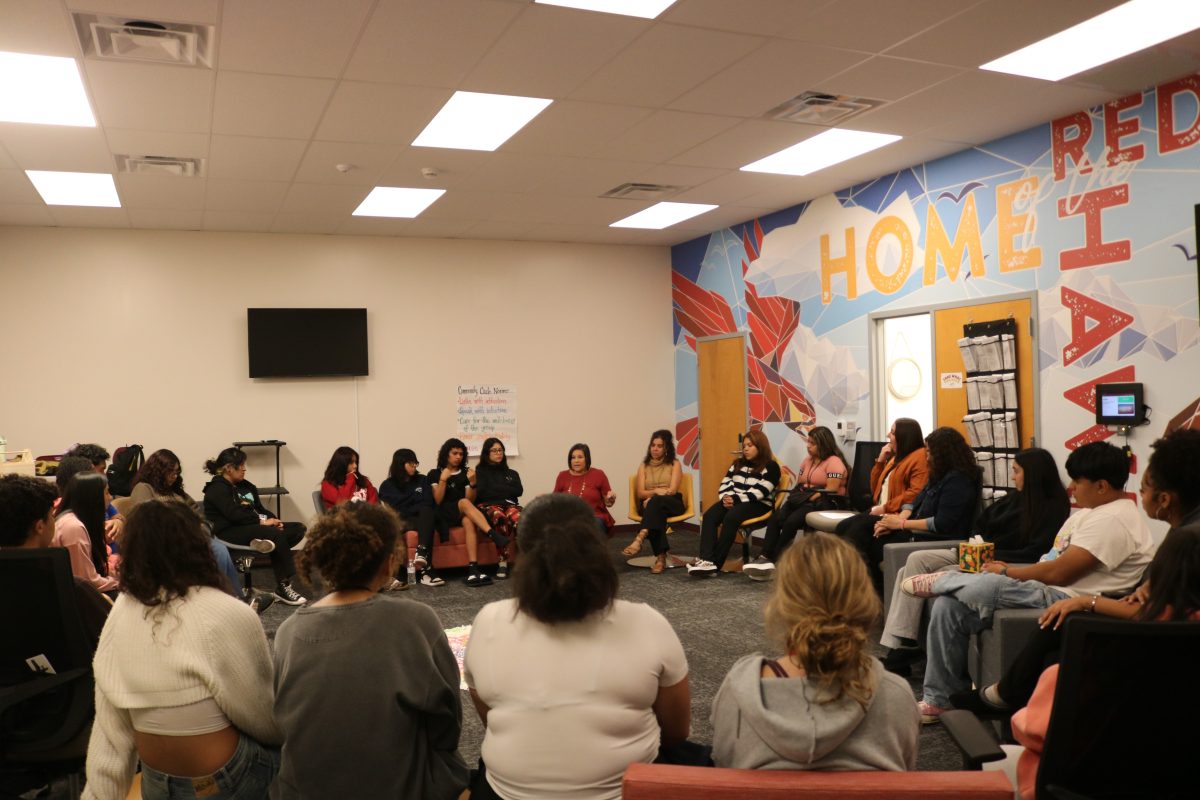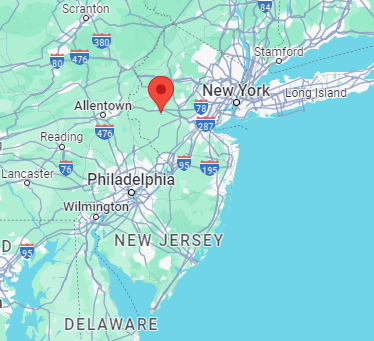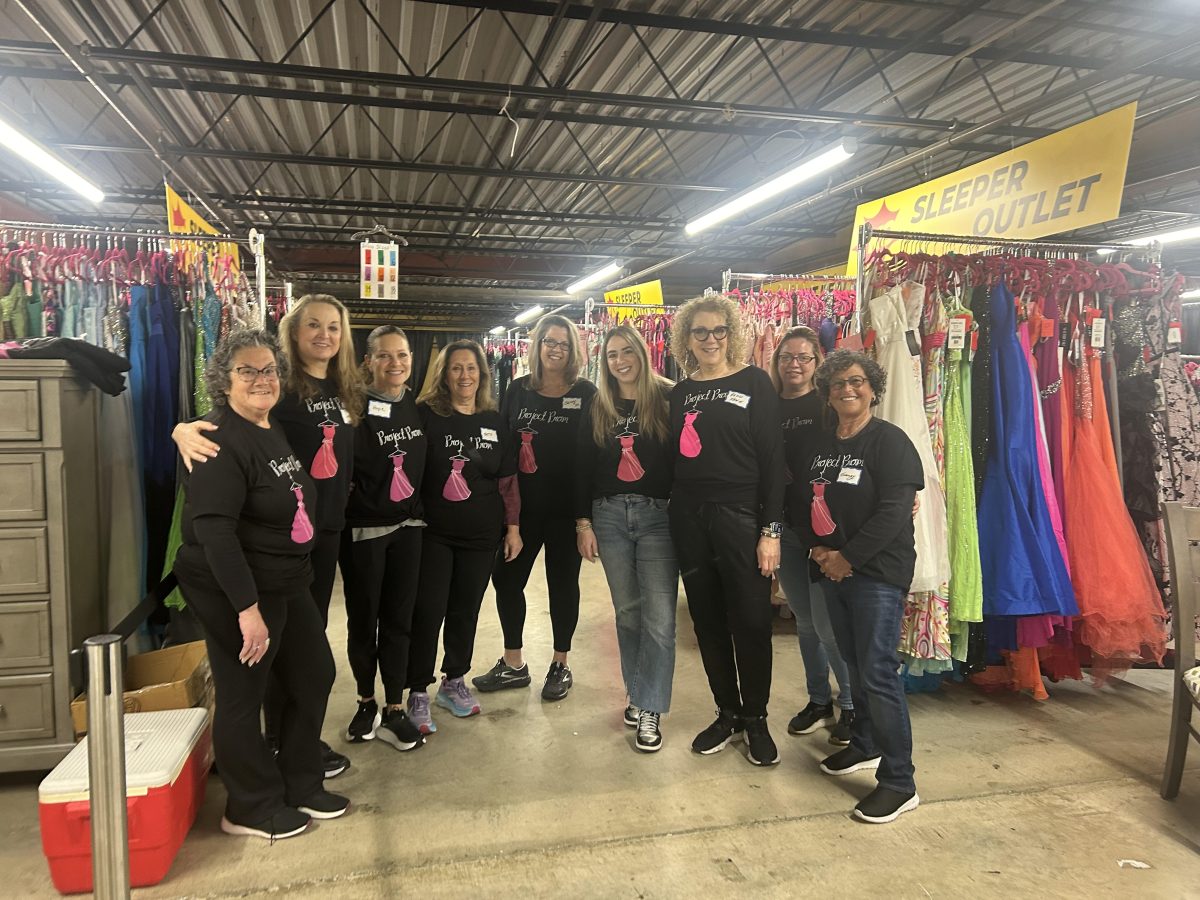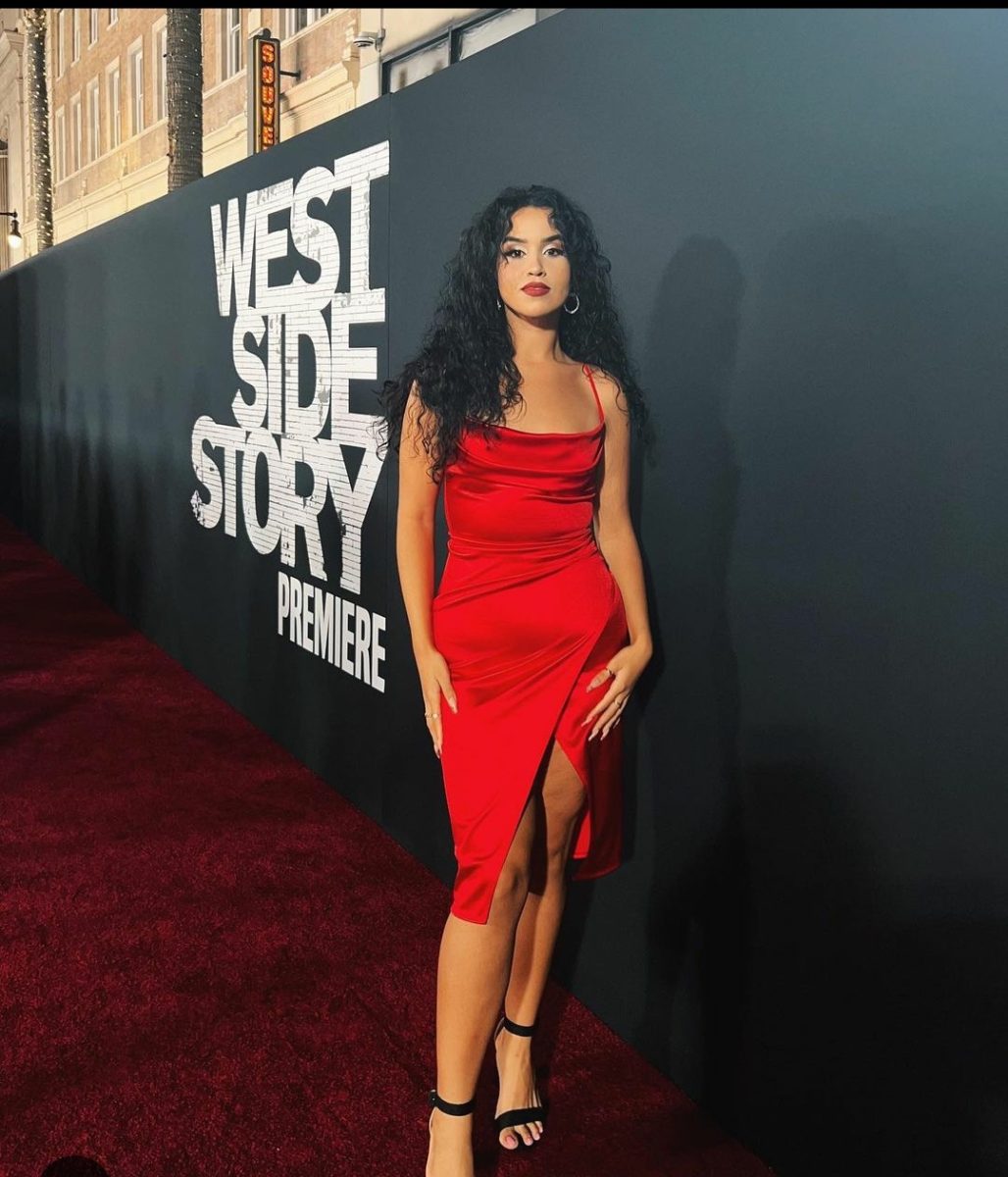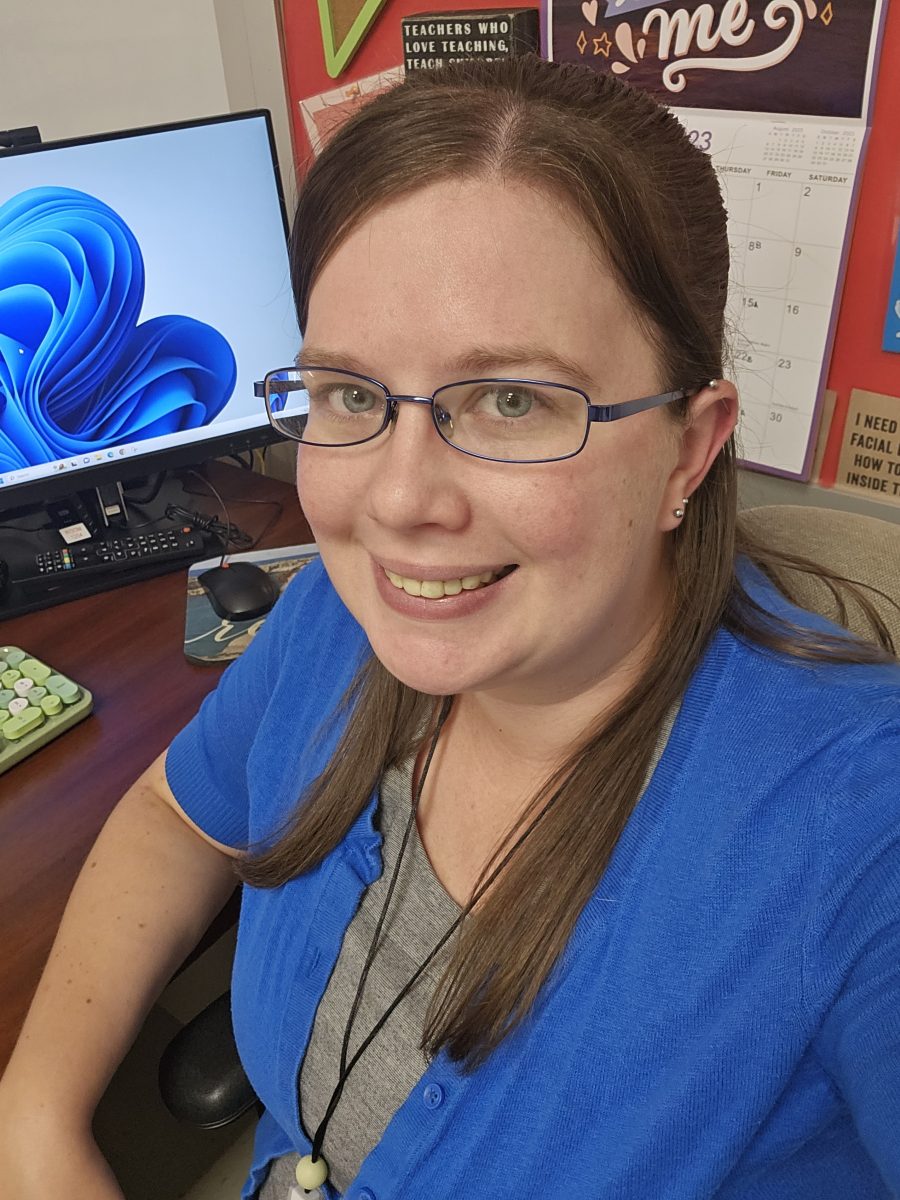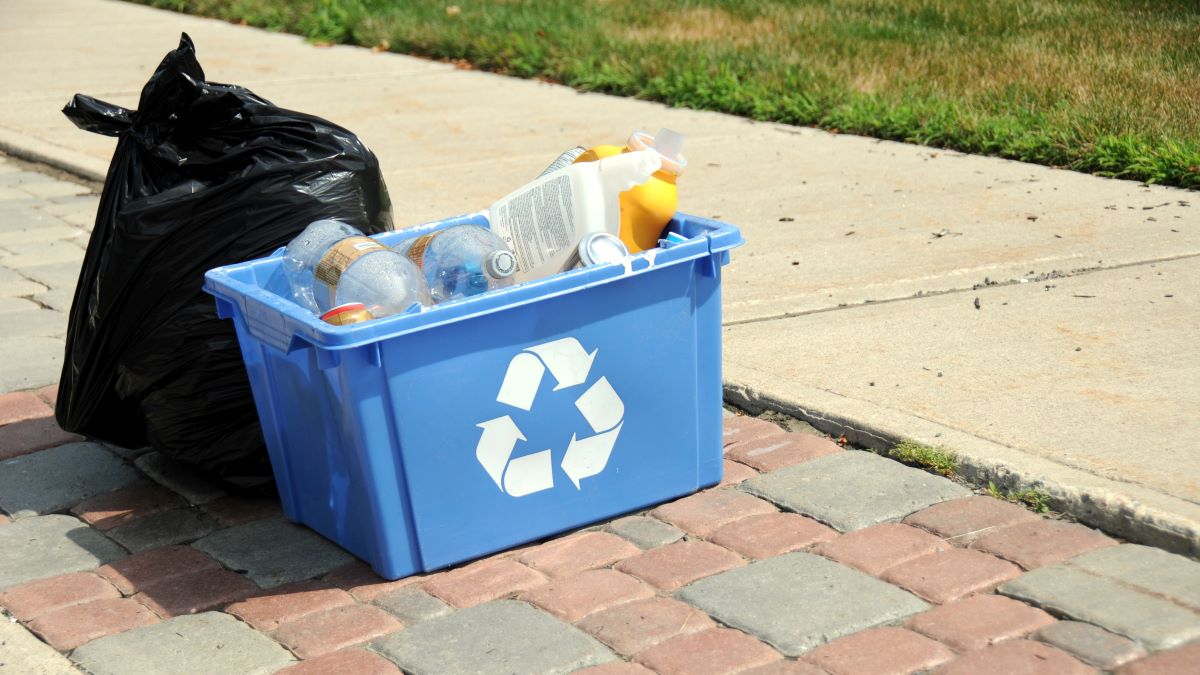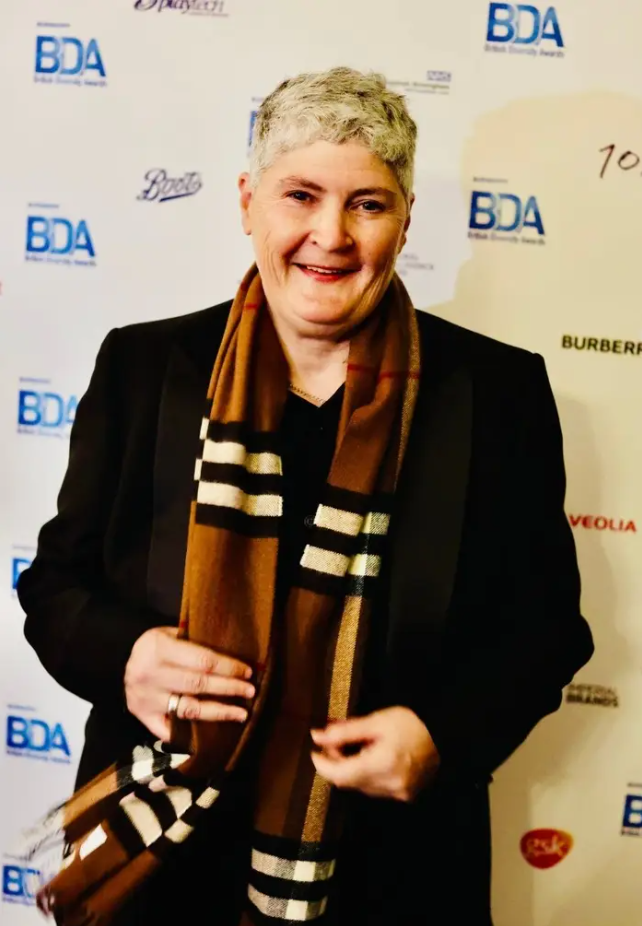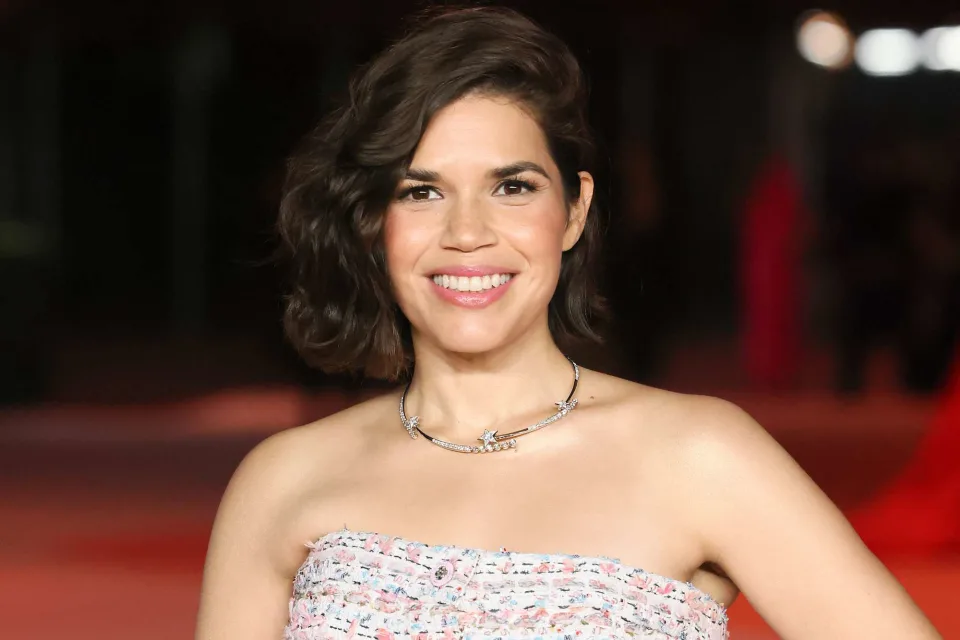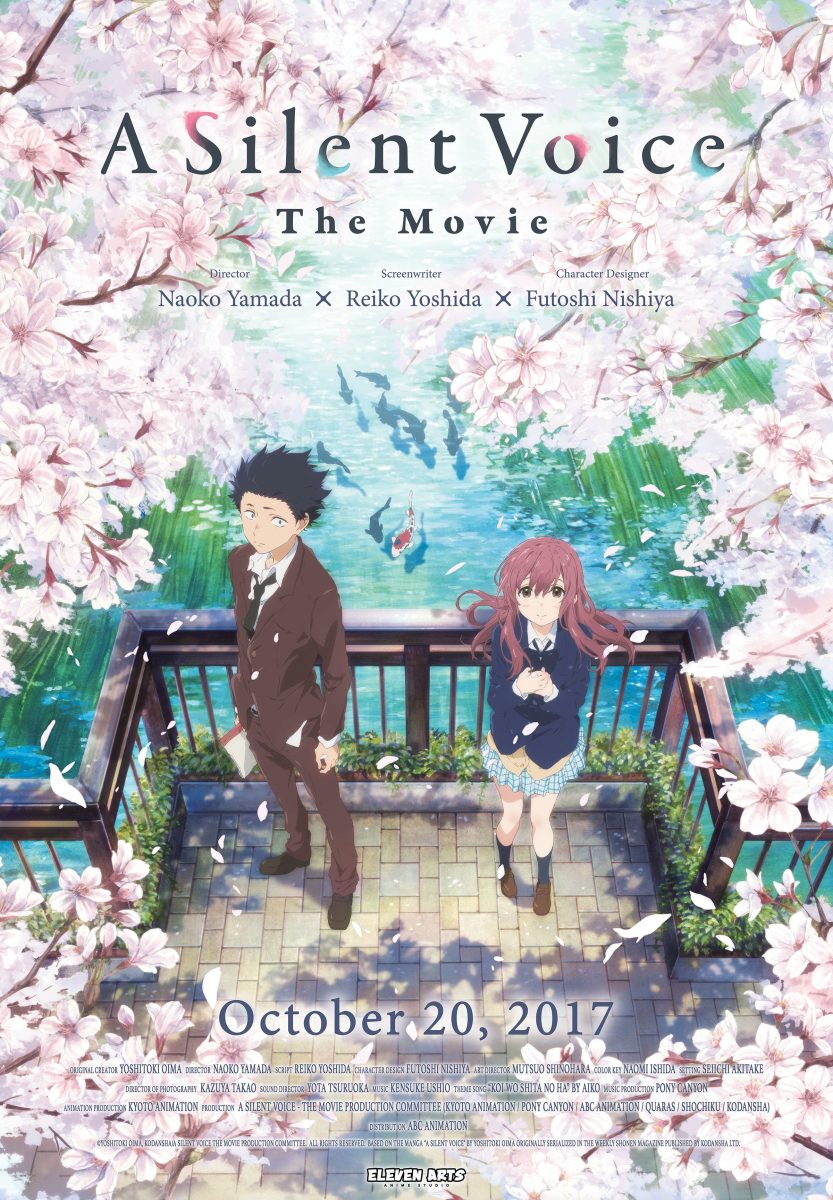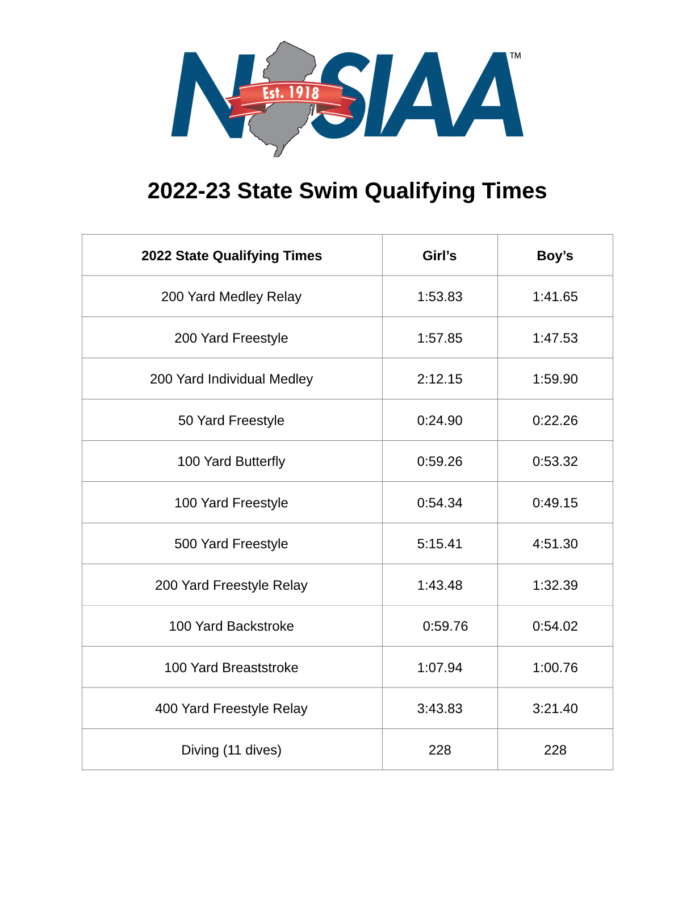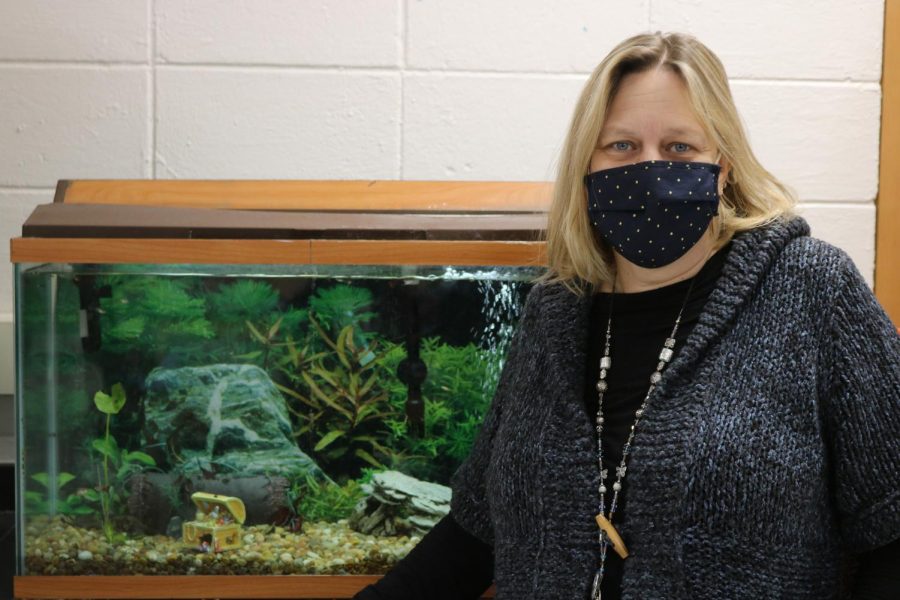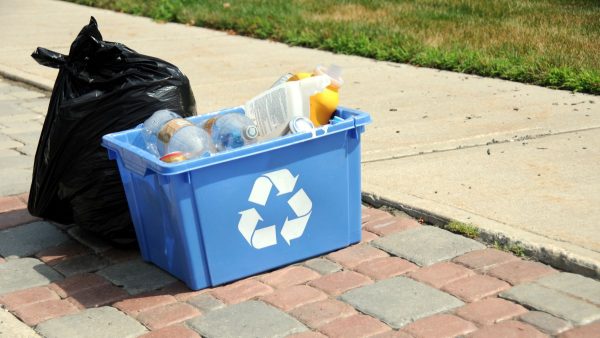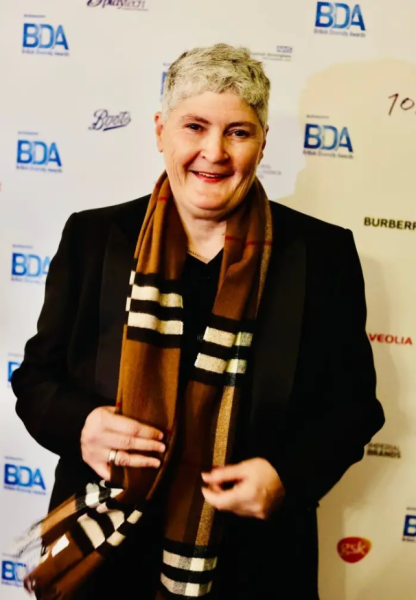“You Guys Keep Me Young”
Teacher Feature: Mrs. Melissa Hannan, Teacher of Biology and Ocean Science
Mrs. Hannan standing beside her class fish tank.
Mrs. Hannan, a biology and ocean science teacher, joined the faculty of ACIT (then Atlantic County Vocational Technical School) after leaving her other job as a marine biologist in 2005. Many students enjoy Mrs. Hannan’s class because they find her to be relatable, easy going, and creative. She has a way of making students feel comfortable in conversation, whether it be about school or more personal matters. In this interview, Mrs. Hannan highlights some aspects of her current and previous jobs while giving advice to science-driven students. Just like in the classroom, readers will find themselves getting lost in Mrs. Hannan’s passion for science through her unique experiences that she shares in this interview.
Tell us a little about some of your interests.
I love the ocean. I am a scuba diver. I also love animals, I have a lot of pets of all sorts: fish, dogs, turtles, parrots.
You said you were a scuba diver, how did that start?
For 26 years I worked for Atlantic City Cruises, the way I got that job was, I was on board with Rutgers Uni studying Atlantic Bottlenose Dolphins that come up and stay here all summer. So we were mapping the family trees of the local dolphins. They all have different scarring on their skins so that’s how you identify them, we would take skin and blubber samples to make sure they were healthy and take them back to the lab. Anyone from the public can go dolphin watching on the boat, which is in Gardner’s Basin in Atlantic City. Every day I was with them [the dolphins] . It was so peaceful and beautiful.
Did you have a favorite dolphin?
I used to love Dolphin 56, who was a war trained bomber dolphin, trained for the Korean War. He had the number 56 tattooed on his dorsal fin to identify him. They trained him to sniff out bombs in the ocean and when they were done with him he was released in the wild. He didn’t know how to interact with the other dolphins so he was solitary, which is unusual for most dolphins.
That’s really cool! How long did he live?
So, dolphins typically live as long as their teeth hold out, about 40 years, but he lived longer. He lived until he was in his 50s. Dolphins generally die because their teeth rot out and they can’t fish so they starve. He probably lived longer because he was captive at first.
Did you get to touch or play with the dolphins?
We did not interact with the dolphins because they’re wild, so you try to be as hands off as you can. He went around the boat and jumped… showed off for us and all that. But you wouldn’t really touch them or ride them. There was one Dolphin who had a ragged dorsal fin..I called her Scar. There was another dolphin who was a big grandmother dolphin so I called her Big Mama. Female dolphins stay together for their whole life while the males go in and out, drifting, just playing and mating.
Tell us a bit about your family.
I am the mother of one biological child and one bonus child. My bio’s name is Delaney and she just graduated from here last year. She’s going to Rutgers to study Bio Engineering. And my step son, Tyler, is a paramedic in Trenton. He is getting his bachelor in Nursing. I am very proud of them, we are very lucky. My husband, Jim, does HVAC (Heating Air Conditioning). We’ve been married 17 years.
17 years is a long time!
Yes, yes it is.
So where did you go to school?
My undergraduate degree is in Biology from Stockton. My masters degree in Conservation Biology is from Green Mountain College in Vermont.
What were your favorite classes?
Genetics. Ecology. Marine Biology. Studying about life and the environment, I couldn’t get enough of it, I loved it. I enjoyed coming up with solutions to repair the damage done to the environment.
You’re the marine biology teacher as well as the biology teacher, can you tell us what the difference is between the two subjects? Which do you prefer?
Maine Biology is the study of living things in the ocean, Biology is just the study of living organisms, in this case humans. I prefer Marine Biology. In Ocean Science we study global processes and study climate change and the effects it has and will have eventually. We like to do a lot of experiments and hands-on activities in that class.
Do you have any advice or words of wisdom to share with students interested in pursuing Biology or any form of science?
Try to take as many different science classes as you can to really find what you’re passionate about, because there are so many different ways you can go.
One last question, what’s your favorite part of teaching?
My favorite part of being a teacher here is getting to hang out with my students, you guys keep me young.
